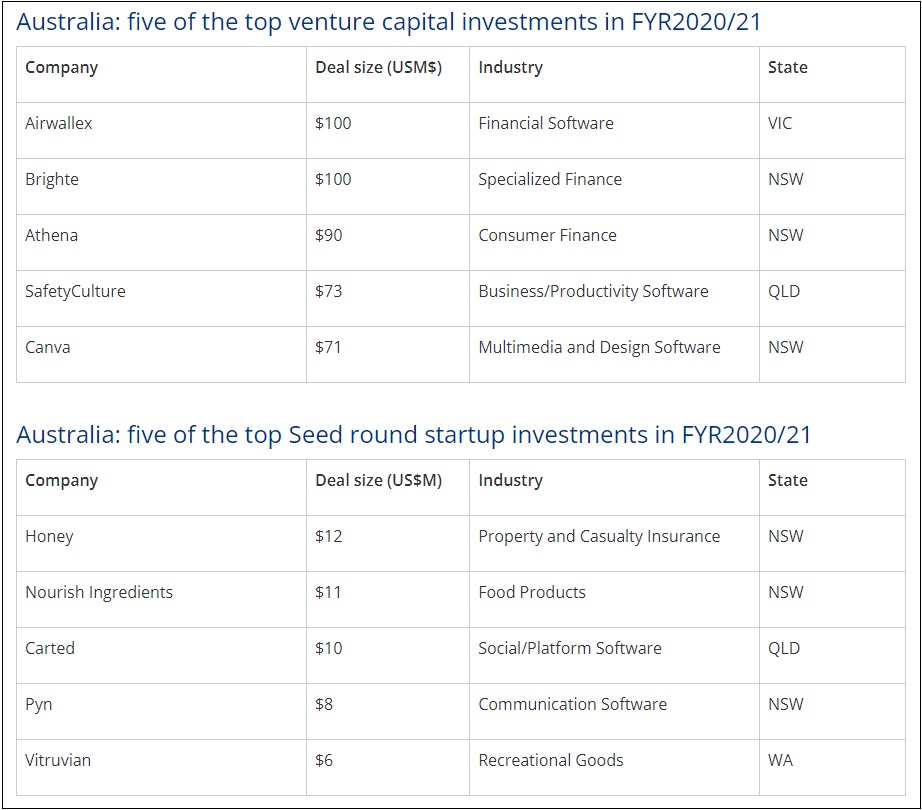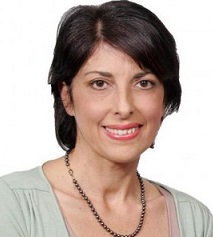The hopes and dreams of many startups have been realised through finding the right investor.
For every successful funding, there are many who miss out.
The good news for Australia is that funding is on the rise.
According to the latest KPMG Venture Pulse report, there were 327 Australian VC investment deals over the past financial year, up from a 311 over the previous 12 months.
Australia saw a continued rise in venture capital funding between 1 July 2020 and 1 July 2021, to a record US$2.5 billion, up from US$1.95 billion in the previous year.
Leading Australian investor, Blackbird Ventures, has more than a billion dollars under management and a portfolio of over 80 companies, including local successes Canva, Zoox, SafetyCulture, Culture Amp and Propeller Aero.
Melia Rayner, communications manager at Blackbird, says there is a right way to go about finding an investor.
“Our role as investors is purely to help our founders be successful. We work for our founders; they don’t work for us.”
Rayner said most the common mistake startups make is not reaching out early; before there is a product, even if it's just an idea.
“Nobody in our investment team is allowed to say, ‘it’s too early’. We have invested in a number of startups before there is even a product, including Canva.”
“Many startups, particularly those in frontier or "deep tech" will require more significant investment to test their idea and turn it into reality, for instance, you might need specialist facilities, highly-trained team members or specific equipment.”

Where the money's going. Image: KMPG
Raising investment earlier will quicken the process.
“A good investor should help with connections and advice on making your idea happen. We believe that founders are the best help to other founders, so we often introduce founders within our portfolio of companies to help on a topic or challenge they’re facing."
A warm introduction is a good place to make a connection.
“If you know someone, that’s a good a place to start, but not essential,” she adds.
“Investment opportunities come through our existing founder community, other VCs and even through our website and social media.”
The common thread that clinches an investment deal is someone who expresses their mission in high definition and passion.
“Our favourite time to meet founders is right when they're getting started. We don’t have a niche, we invest across the spectrum – from self-driving cars, software companies, rockets, healthcare companies, and plant-based meat startups.”
Blackbird runs free programs with other companies, such as their mentoring program Giants and the Startmate Accelerator.
“Being part of these communities can help you get familiar with investors and build your relationships before raising investment.”
On average, the Blackbird teams see more than 160 companies a month, and invest in around three per month.
In 2021, the company has already invested in 14 companies.
“This number is an increase on previous years as we’ve grown our investments team over the last 12 months. Generally, each member of the team makes an average of 3-5 investments over the year.”
Funding ranges from $30,000 to upwards of $30 million.
“This completely depends on the size of the round, stage of the startup and what capital it needs to progress.”
When raising a capital, a word of caution for startups from Rayner.
“Remember, you’re selling someone a piece of your company. It’s important that founders are careful not to give too much away too soon; 10-20 per cent is a usual amount to sell in an early stage round.
“Importantly, venture capital is a long-term commitment, so you want to bring in people that you trust.”
Richard Moore, early stage technology advisor and angel investor, is a member of Brisbane Angels.
The group has 90 members and invests $4 million in twenty startups per year.
He provides background into the pitching process. Typically, his team meets once a month and listens to three pitches from entrepreneurs.
“Angel groups have different processes, but all involve pitching to a room full of angels willing to invest in early stage companies. If there’s sufficient interest, due diligence is undertaken and before investment begins a few weeks later.”
There is one common thread for where pitches go wrong, or fail and that is when the entrepreneur does not have a clear and well articulated investment thesis.
“The pitch should be targeted at investors and not customers of the business,” says Moore.
“Remember, investors are looking to buy shares in the company and not the product the company sells.”
He recommends sourcing help on the right way to present pitch deck.
“This internet is a great place start, you’ll find numerous standard pitch decks providing assistance. They highlight the 10/12 critical issues in which an angel investor is interested.
“Before seeking investment, it’s common to join an accelerator program. There’s several accelerator programs across Australia. They help develop the investment thesis and refine the pitch. Once this is clear, you can approach an angel group,” Moore recommends.
“There is a list of angel investors at AirTree Ventures, where angels are willing to receive unsolicited investment enquiries from entrepreneurs.”










